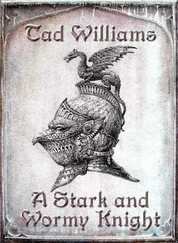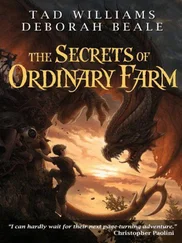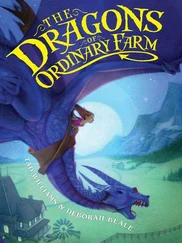“I’m afraid half of them have died already, Golden One,” Vash said.
“Your people bred these poor creatures like hounds? Just to work in the mines?” Olin seemed surprised, as if he had learned nothing about the Xixian royal family. If Vash had not felt a little nauseated by the sight of the trudging, subhuman Khau-Yisti filing across the sand, he would have been amused by the northern king’s naivety.
“Oh, not just for that,” said the autarch cheerfully. “As you will see, they also make the best handlers for the askorabi —with their armored bodies, they are almost impervious to the creatures’ stings. In fact, in our tongue we call these particular Khau-Yisti kalukan —‘the shielded ones.’” He smiled and looked up at the sun, which had appeared from behind the clouds. “The only thing they truly hate is too much light. Hear them murmur in pain! I think you may be right, Paramount Minister Vash. I suppose we will have to use the human handlers instead.” He didn’t sound particularly bothered.
The creatures were in obvious discomfort, clumsily trying to keep the bright sun out of their tiny eyes with their plated hands, stumbling, halting in confusion in the middle of the ramp, blearily staring out from the depths of their carapaces. Every time they slowed, though, the handlers were on them, poking at the joints between their armor plating with sharp-tipped iron rods.
“Terrible ...” said Olin quietly.
“Ah, you feel the tug of kinship.” The autarch nodded sagely.
“What are you talking about?”
“All the Yisti are Qar. You have Qar blood yourself. Thus, these poor monsters are your kin, Olin.” The autarch’s tone was again one of an adult speaking to a slow child. “It demonstrates your good heart that you recognize that, no matter how bestial these relatives might be. Now remain silent and pay attention—wait until you see what comes next!”
The autarch was not even looking at Olin Eddon as he spoke, but Vash was, and he was surprised by the intensity of the cold hatred on the northern king’s face.
* * *
The sky darkened. The day, which had been warm, suddenly took on an edge that reminded her it was still spring, and a cold one at that: true summer was still far away. The Lady Idite dan-Mozan sighed and clutched her bowl of gawa a little tighter. “Just a moment longer, Moseffir,” she called to her grandson, who was digging between the stones of the courtyard with a stick. “Then it’s time to go inside for your supper.”
“Won’t,” the little boy said with the same careless certainty his father had shown at that age—and doubtless his grandfather, too, although of course Idite had not been present to see that. He wouldn’t even look at her because he knew that as soon as he did he couldn’t ignore her anymore, and that was like his grandfather Effir.
The thought of her merchant husband made the suddenly dark day seem darker still. She had lost him only a few short moons ago, and some days that terrible night of fire and blood actually seemed to be receding into the past, like a landmark seen from a barge floating down a river. But then at other times, like now, the hurt was so fierce, so… alive that it might have only just happened. It was moments like this that she had to fight off despair. Only her family gave her reason to go on. Were it not for her son and his daughters and young Moseffir here, Idite might have walked out into the cold ocean off Landers Port and let the gods do what they wanted with her.
She did not know how long she had been lost in thought when she became aware of Fanu standing and waiting for her. Why hadn’t the girl said anything? Idite did not have the heart for anger, though. Fanu had always been shy, but she had been so pretty once… ! Since the burns, though, she had crawled back inside herself like a desert tortoise retreating into its shell. Even in the company of the other women, some of whom had scars far worse than hers, there were days that scarcely a dozen words came out of her mouth between sunrise and sunset.
“What is it, Fanu-saya?”
The girl’s attention had wandered to Moseffir, vigorously beheading stems of grass with his little stick. “Oh, Mistress! A thousand pardons! You have a visitor.”
Idite was surprised. It was a strange time of the day for it. Still, she smiled and sat up straighter. “Truly? Well, do not keep her waiting—the Great Mother herself sometimes goes disguised, it is said, to see who honors her injunction to hospitality!”
“Oh, but, Mistress,” said Fanu, “it is a man. A stranger .” She said this last word as though it described something with claws and sharp teeth.
“Ah. Did he give a name?”
Fanu shook her head. “But… he is handsome!”
Hearing Fanu say something so much like her old self was more surprising than the sex of the visitor. “All the more reason to send him in then,” said Idite, laughing a little. “You may stay if you wish.”
The girl’s eyes widened and she shook her head violently. “I couldn’t, Mistress! I couldn’t!”
“Then have one of the porters come in with him, so that propriety is maintained.”
After Fanu had fled the courtyard Idite straightened her robes. Not that she cared very much what even a handsome young man thought of her, but neither did she wish to look like an old gossip. She had the honor of her son’s house to think of, after all—it was her home, now.
The old porter led the visitor in, then went and sat cross-legged in the corner of the courtyard. Idite examined the newcomer as she gestured for him to sit in the chair across from her. Fanu had been right: he was easy to look upon, tall and slender, with a trimmed beard just a little longer than what was proper—it gave him a bit of a bandit look—and sumptuous clothes in the northern style, the sort of thing that might ordinarily be seen on a young nobleman of Tessis or Jellon. His skin and dark, almond-shaped eyes, though, showed that his blood originated from the same place hers did.
“Lady Dan-Mozan.” He folded his hands on his breast and bowed his head above them. “You are very kind to see me.”
The courtly gesture startled her. She had not seen it performed with such grace in years, not since she had been a young woman in Nyoru. It brought on a pang of homesickness that she covered by returning the Tuani greeting with one of her own. “I see you are my countryman,” she said. “Or you lived there. What is your name, young man, and what can this useless old woman do for you?”
He smiled and she found herself remembering more of her youth, the hot desert nights and the whispers of the women as the men paraded past in their military finery at the beginning of the Ul-Ushya Festival. “Useless? I think not. Your kindness and wisdom are legendary, Lady Dan-Mozan. Again, I thank you for inviting me into your beautiful home and restful garden. I have ridden a long way to see you.”
“I am flattered,” she said, more certain than ever that something strange was afoot. “But you must know this is not my house, but my son’s. He was kind enough to take me in when my own house burned earlier this year. It was a sad time, but at least now I have the chance to see my grandchildren as often as I wish.” She gestured to Moseffir, who had managed to get dirt all over his face. Idite sighed. “Even a grandmother cannot keep that one out of mischief. Moseffir! Come here.”
“The fire, of course,” said the young man, nodding as she wiped at the boy’s face with the heel of her hand. “Please accept my very deepest regrets on the death of your esteemed husband. Effir dan-Mozan was a prince among merchants.”
“Better, I suppose, than being a merchant among princes,” she said, surprising him a little. She freed Moseffir, who waddled back to his excavation. “I do not mock you, but please do this old woman the honor of dispensing with such flowery stuff. Of course I miss my husband more than anyone can ever know. I appreciate your courtesy, but since you did not know him ...”
Читать дальше












